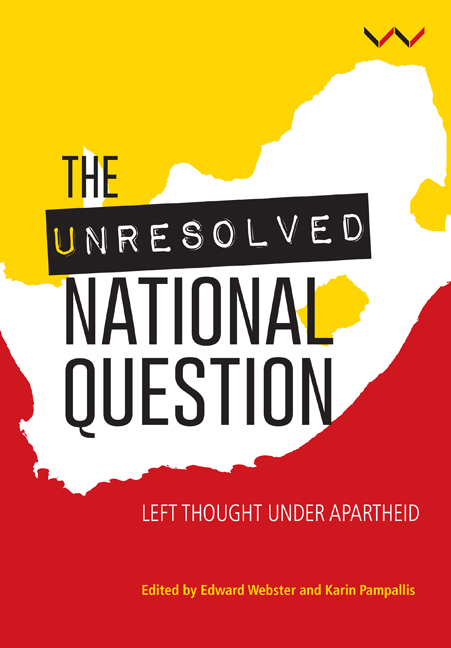Introduction: Revisiting the National Question
Published online by Cambridge University Press: 21 April 2018
Summary
The 2015 academic year seemed to begin on a familiar note as students struggled to find sought-after places at South Africa's top universities. Then a protest broke out in February at the University of Cape Town (UCT). The target was the prominent statue of Cecil John Rhodes (the arch-imperialist of the British Empire) which had occupied a central position in the university for nearly a century. The trigger for the protest was the deep sense of injustice felt by black students by this ‘celebration’ of the symbol of colonial conquest, exploitation and land dispossession. The demand, named ‘Rhodes Must Fall’, rapidly spread across South African universities, culminating in the dramatic removal of the statue. In October a demand for no university fee increases – ‘Fees Must Fall’ – took centre stage. By the end of the year the protest had developed into a broader call for the decolonisation of universities, with the issue of race at the centre of nationwide campus protests (Habib, 2015).
Seized with the challenge of the present, the architects of this new movement, not surprisingly, seemed impatient with the narratives of the past. But we have to grasp ‘the present as history’ (a phrase drawn from The Eye of the Needle by political philosopher and anti-apartheid activist Richard Turner, initially published in 1972). The National Question – the drive to build one united, democratic nation – is a ‘century-long discourse on South Africa's nationhood’ (Mistra, 2014: 49) framed by a number of popular narratives or stories:
• Colonialism of a Special Type (CST) – the notion that South Africa consists of two nations, the colonising and the colonised, in the same territory;
• the approach that recognises the numerical superiority of indigenous Africans as the most oppressed and exploited members of society, and places special emphasis on African leadership, as well as prioritising the conditions of African people;
• the ‘rainbow nation’ approach, which emphasises the multiple identities that constitute South Africa's diverse population (Mistra, 2014: 49–50).
- Type
- Chapter
- Information
- The Unresolved National Question in South AfricaLeft Thought Under Apartheid, pp. 1 - 18Publisher: Wits University PressPrint publication year: 2017



